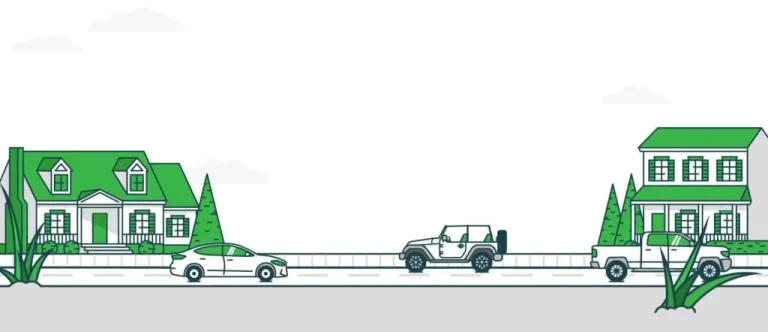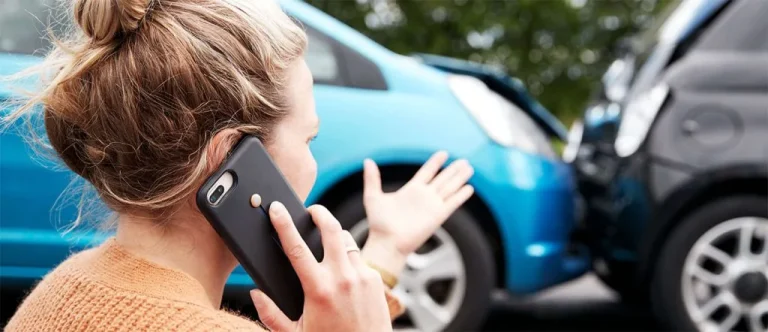It can happen to anyone at any time. No matter how good of a driver you are or how well you obey the rules of the road, speeding tickets are a pretty common fact of life.
If you’ve recently gotten a speeding ticket, you might be wondering how long a speeding ticket stays on your insurance and whether or not you’re going to have to pay more for car insurance coverage. Here’s what you can expect.
How Long Does Speeding Ticket Stay On Record for Insurance?
It varies by state, but on your record for auto insurance, a speeding ticket can last for anywhere between one and six years. Since your driving record doesn’t directly translate to your insurance record, insurance companies will typically ask you about any tickets you may have received in this time frame. As more time goes by, the effect of a speeding ticket on insurance will usually have less of an impact.
What Does a Speeding Ticket Do to Your Insurance?
Speeding tickets and car insurance don’t exactly mix, as your insurer will likely determine your rates using your driving record as a factor. If you have a ticket on your record, your insurer will likely raise your premiums or offer you an above-average rate.
When a car insurance company issues you a policy, they check your motor vehicle report with your state to inspect your driving behavior and history. Accidents, violations, and license points appear in this report — which is somewhat similar to a comprehensive loss underwriting exchange report.
So, if you’re wondering how do speeding tickets show up on insurance, that’s how. Speeding tickets are on this report, and your insurance company will see them. Most states use a points system when it comes to driving infractions. If you accumulate too many points, you could lose your license.
Getting a speeding ticket could result in a fine, and a ticket will appear on your record even after you pay it. Keep in mind, though, that if you continually pick up tickets or other major infractions, auto insurance companies will view you as a higher risk, and it will be difficult to get affordable coverage.
How Does a Speeding Ticket Affect Your Insurance?
We know now that speeding tickets and insurance increases go hand in hand, but there are other insurance-related consequences to these traffic violations. While one speeding ticket may only result in increased rates, repeat offenses and major infractions may result in additional consequences.
At that point in time, you may only qualify for high-risk car insurance. Being classified as a high-risk driver means you’ll likely pay more for car insurance than the average person. Having a track record of at-fault accidents or reckless driving could cause an insurance company to deem you high risk. Filing an SR-22 will certainly make you high-risk, too.
You don’t necessarily have to have done something wrong on the road to be considered high-risk, though. Allowing your coverage to lapse would raise red flags for insurers. Also, being a very young driver or very old driver could make you a high risk. New drivers and elderly drivers are the most likely to get into accidents.
Why Does a Traffic Citation Affect Insurance?
We’ve gone over how long do tickets and accidents affect insurance, but you may still be wondering why they have an affect at all. Insurers are in the business of risk. So, if you prove yourself to be risky behind the wheel by collecting speeding tickets and other moving citations, they will consider you a risky policyholder.
The riskier you are to have as a policyholder, the higher your premiums will be. Insurers take a risk binding anyone a policy, assuming that everyone is on their best behavior behind the wheel and springing to the rescue should an accident happen.
However, if you prove to your insurer that you’re likely to make poor choices behind the wheel, leading to traffic citations, you prove to your insurer that you have a pattern of risky behavior, and they may need to continually come to your rescue during claims.
Thus, the more you use your insurance, or the more your insurer perceives your potential need to use insurance, the higher your insurance will go up. This is why if you get a ticket, your insurance will go up.
In 2022 alone, speeding was a contributing factor to 29% of all traffic fatalities, leading insurers to be wary of those with speeding tickets.
What Tickets Affect Insurance?
It’s important to note that a rate increase usually only applies to moving violations, like speeding tickets. Parking tickets shouldn’t raise your rate. Also, if you received a speeding ticket in a different state from where you live, it won’t always affect your car insurance. Maintaining motor vehicle records is a state government responsibility, and not every state shares information such as speeding tickets with other states.
How Much Does a Speeding Ticket Increase Your Insurance?
One of your first thoughts after getting a ticket will likely be how much the ticket will raise your insurance, once you stop worrying about what your parents or spouse might say.
In most cases, your car insurance will likely go up after a speeding ticket, but to what extent depends on your provider and the severity of the offense.
How much your insurance will increase after a speeding ticket will likely be between 15% and 40%, depending on your provider. Some providers are more forgiving than others, and while a speeding ticket will last longer on your record in some places, its effect on your insurance typically decreases over time.
If you were issued a speeding ticket for going more than 15 miles per hour over the limit, the chances of your insurance going up are higher compared to tickets issued at a slower speed. Additionally, if you’ve gotten multiple infractions, or your citation involved reckless or dangerous behavior, insurance companies could see you as more of a liability in the future.
Does Your First Speeding Ticket Affect Insurance?
Every carrier has a different policy regarding traffic tickets and how long a speeding ticket will affect insurance premiums. For instance, your first speeding ticket may not affect your rate at all if you’ve been a good driver and customer for many years without any past mistakes or auto claims.
However, that isn’t to say your insurance won’t go up a little bit. While it’s difficult to say exactly how long do tickets and accidents affect insurance, it’s likely that your first infraction won’t have as big an impact on your insurance as, say, your second or third.
When Will a Speeding Ticket Show Up on Insurance?
In most cases, you won’t see an increase in your insurance rates until your policy is up for renewal. So, if you renewed your policy in February and got a speeding ticket in March, you won’t feel the effect on your auto insurance until next February, given your policy is good for one year.
Generally, the more serious the infraction, the longer it stays on your record, and the longer it could affect your insurance. For instance, a speeding ticket for going 30 miles per hour over the speed limit should raise your rate more than a speeding ticket for going 10 miles per hour over.
Garnering a lot of speeding tickets of any type will certainly raise your rate, though. And while your insurer is unlikely to cancel your policy in the middle of the term if you accumulate too many, they may decide not to renew it.
How Long Does It Take for a Speeding Ticket to Fall Off Your Insurance?
It can take anywhere from one to five years for a ticket to fall off your insurance. How long does insurance look at tickets will depend on your state, insurer, driving record before and after the ticket, and insurance history. If a year after you get the ticket you don’t receive any other traffic violations, your insurer may consider you trustworthy behind the wheel again.
There are some ways you may be able to remove a ticket from your record, thus minimizing its effect on your auto insurance. Many states may allow you to take safe driving courses or attend traffic school, which could reduce your fine or prevent you from gaining points against your license.
If you feel the speeding ticket was unfairly issued, you could contest it in court. The ticket won’t appear on your record if you win the case. You may also be able to ask for a deferral to delay the ticket showing up on your record, too. In some cases, you may not be able to remove a speeding ticket from your record. You’ll have to wait until it expires.
Do You Have to Report Speeding Tickets to Insurance?
No, you typically don’t have to report speeding tickets to your insurance company. They will find out about any traffic infractions you incur when it’s registered with the Department of Motor Vehicles (DMV) and is available on your record.
If your insurer raises your rates after a ticket, luckily, you can get and compare auto insurance quotes from different companies at any time. Clovered allows you to compare policies from different providers entirely online. All you’ll need is some basic information about yourself, your driving history, and your vehicle, and you’ve got everything you need to see quotes from some of the nation’s top auto insurance providers.
So, if you’re unhappy with your provider’s rate increase after a speeding ticket, or your insurer informs you they will not renew your policy, Clovered can help you find the coverage you need at a price that works. You can contact one of our agents directly at 833-255-4117 or agent@clovered.com.
The editorial content on Clovered’s website is meant to be informational material and should not be considered legal advice.




